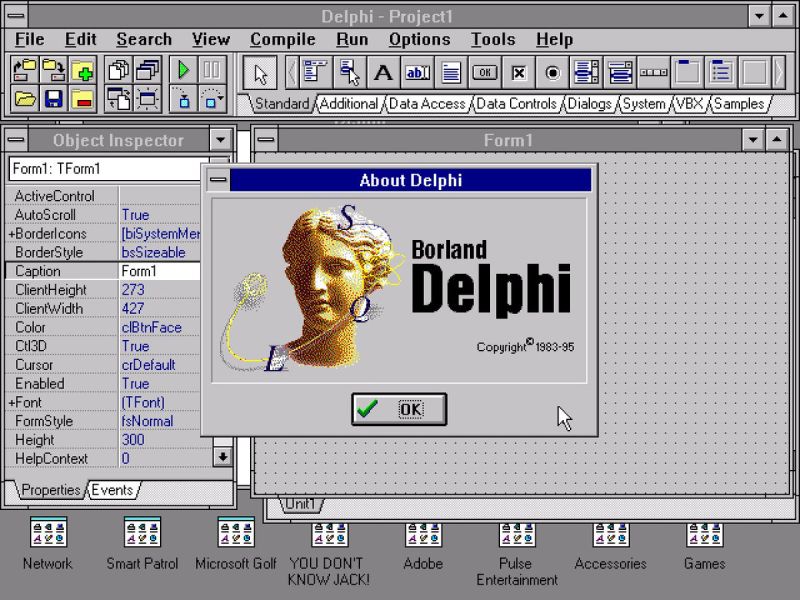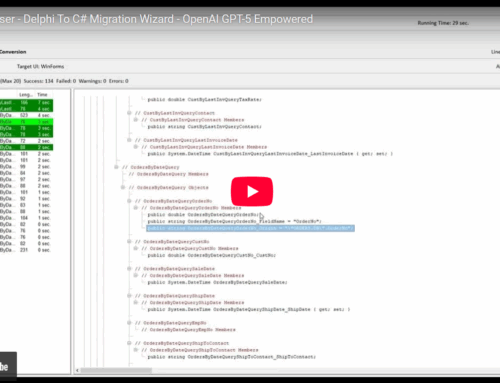Delphi Forever – Is Borland Delphi Simply That Good – and Will Live Forever?
Every few months, I run into another enterprise quietly running a 30-year-old Delphi application, often with no full-time developer left on staff. And yet, the system just keeps on going. Stable. Reliable. Untouchable.
It makes me wonder: Is Delphi code simply that good – or are we witnessing the quiet strength of legacy done right?
Here’s what I’ve seen:
- 🧱 Delphi apps age well: Built for Windows, they just run. The VCL is fast, compact, and efficient.
- 💾 Business logic froze in time: Many of these systems support processes that haven’t changed much since the 90s.
- 🔄 Backward compatibility: Microsoft’s dedication to Win32/Win64 means even ancient binaries still work.
- 💡 Low maintenance: No cloud bills, no containers, no orchestration overhead. Just one EXE that refuses to die.
But here’s the flip side:
- ⚠️ The bus factor is zero — the only person who knew how it works retired years ago.
- 🔒 Security and compliance are relics of another era.
- 🧩 Integration with modern systems is painful.
- 🧑💻 Talent pipeline is thin, and the toolchains are fading.
So… what’s next?
Should we celebrate Delphi’s resilience – or worry that it’s become too irreplaceable for its own good?
Can Delphi code live forever?
Or are these silent systems the digital equivalent of a ticking time capsule – running flawlessly until one day, they don’t?
I guess not… but why take the chance, when you can easily modernize your Delphi code.
Get started for free, download Delphi Parser’s Modernization & Analysis tools:






